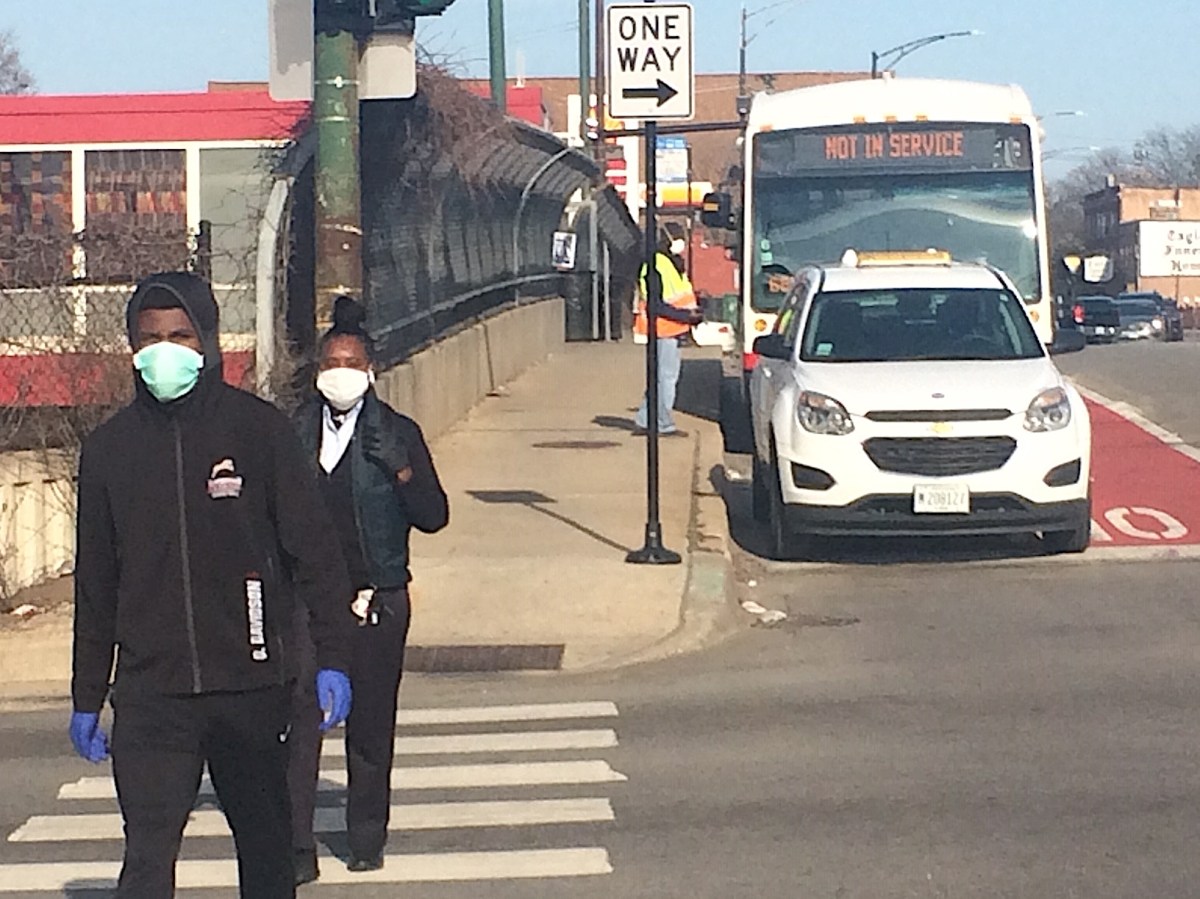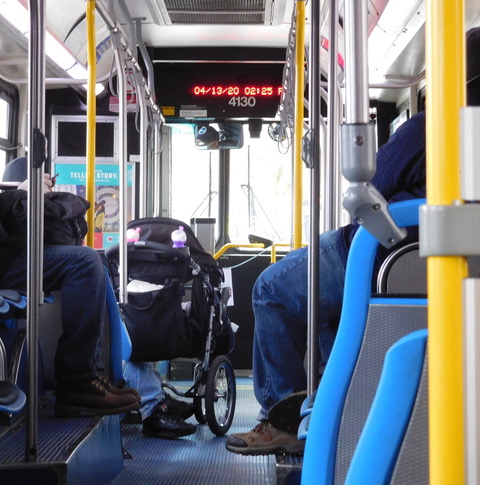The Active Transportation Alliance recently released the first of a series of findings from a listening tour conducted with South Side elected officials and community leaders regarding transportation and mobility challenges during COVID-19. ATA spoke with spoke with two state elected officials, three aldermen, and several community partners and leaders from Bronzeville, Chatham, the East Side, Englewood, Hegewisch, Hyde Park, Riverdale, South Chicago, South Deering, South Shore, and Woodlawn. This report focused on three areas of impact: transit, biking, and issues that intersect with transportation, and solutions that can resolve some of the issues reported on the South Side.
Transit
There have been issues of crowding on buses serving the South Side, specifically #79 79th Street, #63 63rd Street, and #4 Cottage Grove bus routes, and a lack of bus reliability. South siders have been frustrated by not knowing in advance that an approaching bus is full or when the next bus is coming.
The writeup states that South Side Pace riders were further inconvenienced because Pace buses run less frequently and they serve areas where there are fewer alternatives to Pace service. In addition to crowding inside the bus, there were reports of crowding at bus stops and desires for a “safe, clean, and welcoming space” rather than “a sliver of a sidewalk next to a dangerous road.”
Along with requests for a more welcoming space to wait for the bus, there were calls for a better environment inside the bus. Some of the people ATA spoke with said they wanted bus drivers to be more empathetic towards folks experiencing homelessness. People also wanted to see more efforts to distribute masks to riders. The CTA recently gave away “Travel Healthy Kits” which contained hand sanitizer, a reusable cloth mask, and a guide on keeping yourself and others safe on transit. Lastly, folks were grateful for the brief period in which CTA suspended fare collection on buses.
The proposed solutions included improving the CTA Bus Tracker, a continuation of free bus service, and using real-time data to run more buses along crowded routes. I agree with these proposed solutions, but we could go bolder by encouraging the city of Chicago to create pop-up bus-only lanes, a strategy that peer cities have been doing for some time which has seen little traction in Chicago. Bus-only lanes can help to cost-effectively run more buses and reduce the amount of time riders spend on the bus, and their risk of viral exposure. Until Chicago takes action on this front, riders who have flexibility in their schedule can use information on bus crowding from the CTA's Ridership Information Dashboard to plan their trips.
The transit section also discussed COVID-related paratransit issues. Paratransit service capacity has been reduced due to the need to limit rides to one passenger to reduce the risk of spreading COVID. Paratransit service itself is at risk due to its funding being tied to fixed-route service and ridership. The proposed solution of rethinking how we fund paratransit makes total sense.
Biking
This section starts off by acknowledging that biking is “overlooked and underreported in Black communities.” An interviewee is quoted as saying that a person seen biking for transportation in a Black community is seen as “the crusty uncle who can’t do any better.” Despite the cultural stigma of biking for transportation in Black communities, a Bronzeville bike shop owner shared that they have been overwhelmed by the demand for bikes. Some of their customers are essential workers looking to tune up their bikes, along with families and young people looking for an alternative way to get around.
Many of the people surveyed didn't mention biking, but the ones who did wanted to see more protected bike lanes and outreach about existing biking assets. ATA’s proposed solutions reflect this. I would also add that some sort of mechanism to get hands in the bikes of low-income residents would also be helpful. Considering that SUV sales have been on the rise during the pandemic, the city could fund sustainable transportation initiatives such as free bikes for low-income Chicagoans, protected bike lanes, etc., with new taxes on vehicle sales.
Issues that Intersect with Transportation
Most of the interviewees understandably mentioned anxieties around law enforcement, whether it be around social distancing guidelines or at proposed open or shared streets. In addition to concerns around enforcement, participants had other worries on their mind such as access to food, unemployment services, and the Internet (ranging from having a device to affording internet service); rent and mortgage relief; and the wellbeing of incarcerated loved ones. Sadly many of these issues are not new given segregation and systemic racism.
I think it’s best to take the advice of some of the participants provided when asked how they would solve these issues:
“We need a Green New Deal for transit and to create good jobs.”
“We need intergenerational spaces for our people to come together around biking.”
“We need to make cycling safe for all identities: Black, femme and queer especially.”
I look forward to reading the continuation of this listening series and appreciate the effort ATA has made to uplift the voices of those from marginalized communities.





